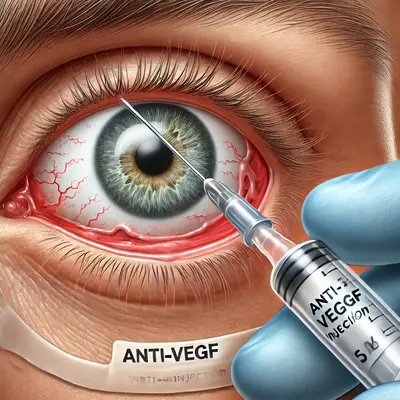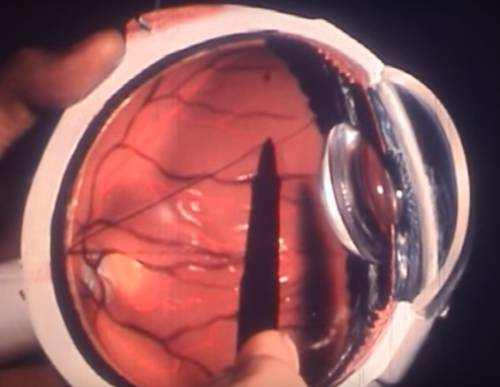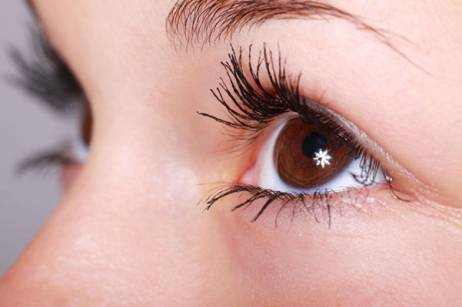Macular degeneration is one of the leading causes of vision loss, especially among people aged 50 and older. It can be distressing to receive a diagnosis of age-related macular degeneration (AMD), but advancements in medical science have brought about various treatment options that can help manage symptoms and slow progression. This article will explore some of the most effective treatments for macular degeneration, helping you understand your options and make informed decisions.
Understanding Macular Degeneration
Macular degeneration occurs when the central part of the retina, called the macula, begins to deteriorate. This area of the eye is critical for sharp vision, which is needed for activities like reading, driving, and recognizing faces. There are two primary types of macular degeneration: dry AMD and wet AMD.
- Dry AMD: This is the more common type, where the macula slowly thins with age, leading to mild to moderate vision loss.
- Wet AMD: Less common but more severe, wet AMD occurs when abnormal blood vessels grow beneath the retina and leak fluid or blood, quickly damaging the macula.
Available Treatments for Macular Degeneration
1. Anti-VEGF Therapy for Wet AMD
Anti-vascular endothelial growth factor (anti-VEGF) injections are the most common and effective treatment for wet macular degeneration. These drugs, such as Lucentis (ranibizumab), Eylea (aflibercept), and Avastin (bevacizumab), help reduce the growth of abnormal blood vessels and prevent leakage that damages the retina.

Case Example: Clara, a 68-year-old retiree, was diagnosed with wet AMD in her left eye. After receiving monthly anti-VEGF injections, her vision stabilized, and she was able to continue enjoying her hobbies, such as gardening and painting.
Anti-VEGF injections are highly effective, but they do require ongoing administration. Depending on individual response, treatments might be scheduled every 4 to 8 weeks.
Quote: “Anti-VEGF therapy has been a game-changer in the treatment of wet AMD, giving many patients a chance to preserve their vision,” says Dr. Michael Brown, a leading ophthalmologist at Vision Health Institute.
2. Photodynamic Therapy (PDT)
For some cases of wet AMD, photodynamic therapy can be used in combination with anti-VEGF drugs. PDT involves injecting a light-sensitive drug (verteporfin) into the bloodstream, which targets abnormal blood vessels when activated by a low-energy laser. This procedure selectively destroys problematic vessels without causing damage to the surrounding healthy retina.
Case Example: When Thomas, aged 72, saw rapid vision loss, his doctor recommended PDT along with anti-VEGF injections. This combination helped stabilize his vision and slow the progression of AMD.
Managing Dry Macular Degeneration
Unfortunately, there are currently no specific drug treatments for dry AMD. However, certain interventions can help manage the condition and slow its progression.
1. Nutritional Supplements
Research suggests that high doses of certain vitamins and minerals can reduce the risk of progression in patients with intermediate to advanced dry AMD. The AREDS2 formula, developed by the National Eye Institute, includes:
| Nutrient | Daily Dosage |
|---|---|
| Vitamin C | 500 mg |
| Vitamin E | 400 IU |
| Zinc | 80 mg |
| Copper | 2 mg |
| Lutein | 10 mg |
| Zeaxanthin | 2 mg |
The AREDS2 supplement helps protect the macula from further degeneration and may help slow the progression of AMD.
Quote: “Patients who take AREDS2 supplements show a statistically significant reduction in the risk of advanced AMD,” states Dr. Susan Lee, director of the Retinal Research Foundation.
2. Lifestyle Changes
Lifestyle changes play a significant role in managing AMD and preserving overall eye health. Some helpful tips include:
- Quit Smoking: Smoking has been linked to an increased risk of AMD. Quitting smoking is one of the best ways to protect your eyes.
- Maintain a Healthy Diet: A diet rich in leafy greens, fish high in omega-3 fatty acids, and colorful fruits and vegetables can promote eye health.
- Protect Your Eyes: Wearing sunglasses that block UV rays may help reduce the risk of AMD.
Advanced and Experimental Treatments
1. Retinal Implantation
Research is ongoing for retinal implants, which could potentially restore partial vision to those with severe vision loss from AMD. This treatment involves implanting a microchip into the eye, which then transmits visual information to the brain.
Case Example: Maria, 70, was one of the first to try a retinal implant in a clinical trial. While her vision wasn’t fully restored, she regained the ability to see shapes and distinguish light from dark, significantly improving her independence.
2. Gene Therapy and Stem Cells
Gene therapy and stem cell therapy are being researched as promising treatments for both wet and dry AMD. These therapies aim to repair damaged retinal cells or replace those that are lost due to the disease.
Quote: “Stem cell research offers exciting possibilities for the future of AMD treatment,” says Dr. Robert Johnson, a senior researcher at the Eye Science Institute.
Can Macular Degeneration Be Cured?
Currently, there is no cure for macular degeneration, but early detection and treatment can help manage symptoms effectively. The key to living well with AMD is to stay informed, work closely with your healthcare provider, and follow treatment and lifestyle recommendations. Keeping regular eye appointments can also help detect changes early on, providing the best chance of preserving vision.
Take Charge of Your Eye Health
Living with macular degeneration can be challenging, but various effective treatments can help maintain quality of life. Whether through anti-VEGF injections, dietary supplements, or experimental therapies, patients today have more options than ever before. Early detection and a proactive approach to treatment are essential for preserving as much vision as possible.



